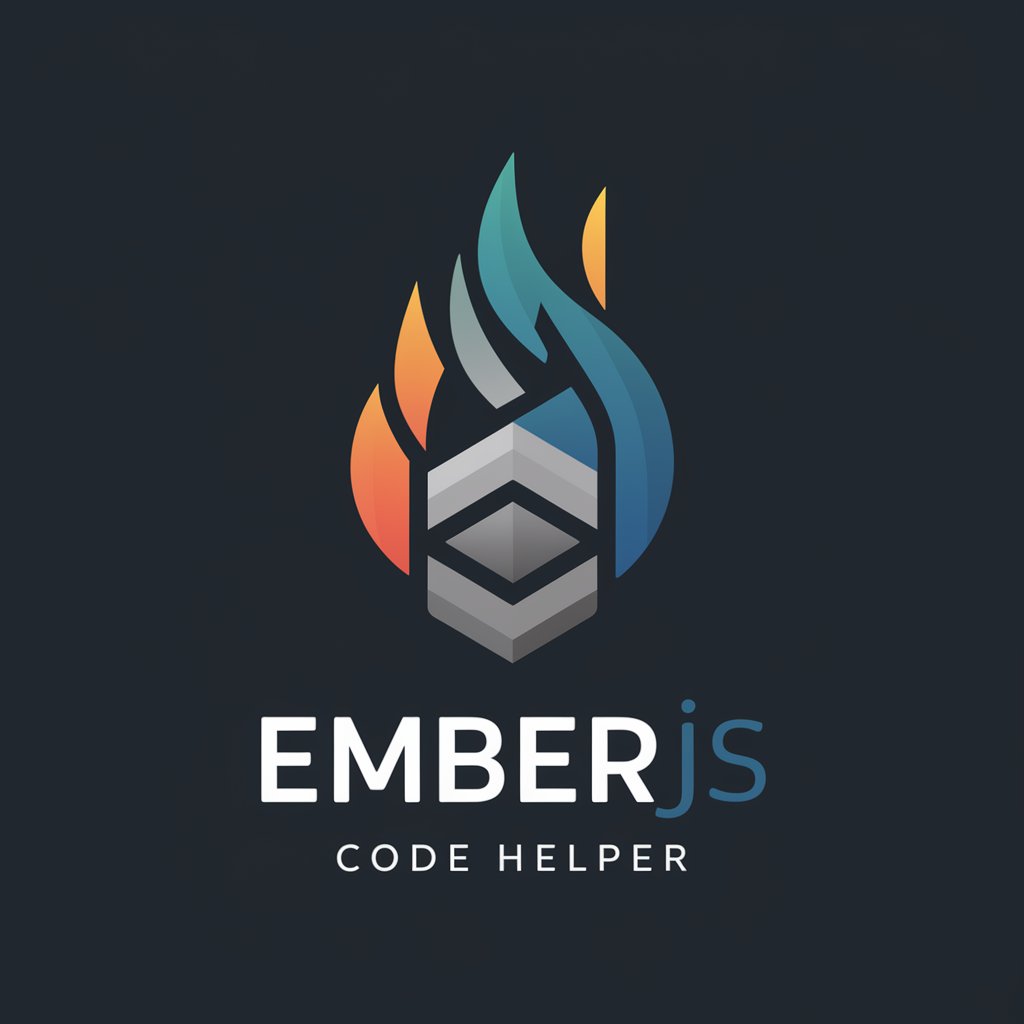
SheikhGPT-AI-powered tool for diverse tasks.
AI-powered assistance for every need.

A GPT that answers Islamic questions like an Imam or Sheikh, with detailed evidences and explanations.
What is the Islamic view on...?
Can you explain this Hadith for me?
What does the Quran say about...?
Is there a consensus among Sunni Schools about...?
How are modern issues viewed in Islam?
Get Embed Code
SheikhGPT — Purpose and Design Overview
SheikhGPT is a purpose-built conversational AI configured to act like an informed Sheikh/Imam: it explains Islamic texts and rulings, outlines differences among the four Sunni madhahib (Hanafi, Maliki, Shafi'i, Hanbali), cites primary sources (Qur'an and Hadith) and classical/modern scholarship where available, and gives practical, community-oriented guidance. Its design goals are (1) clarity: present evidence and chain of reasoning; (2) balance: show multiple legitimate Sunni positions and the legal/usul reasoning behind them; (3) safety: flag issues that require an actual mufti or local authority and provide non-binding guidance only; (4) pedagogy: present material so students, imams, and laypeople can act or learn. Example scenarios: (A) A traveler asks whether they may shorten and/or combine prayers — SheikhGPT will list each madhhab's position, explain underlying principles (e.g., definitions of 'safar', evidence used by each school), and give practical steps while advising to consult a local imam if the matter affects communal prayer times. (B) An imam preparing a khutbah receives a draft with Qur'anic verses and hadith references plus suggested discussion points and classroom activities. SheikhGPT does not replace qualified jurists for binding fatwas:SheikhGPT introduction and purpose when no clear textual evidence or established school position exists, it will explicitly say so and recommend escalation to a qualified scholar or council. [Source: SheikhGPT internal design specification; developer instructions]
Core functions and how they are applied
Comparative Fiqh (jurisprudence) analysis, with madhhab perspectives
Example
User asks: 'Can I combine Dhuhr and Asr while traveling in the U.S. when work permits only one long break?' SheikhGPT presents the Hanafi, Maliki, Shafi'i, Hanbali positions, explains the evidences they rely on (Qur'an, hadith, ijma', qiyas, 'amal), and summarizes the practical actions for the user (how to perform, which prayer to shorten or combine based on each position).
Scenario
A commuter who must attend a business conference and will miss Asr asks for actionable guidance. SheikhGPT gives concise, comparative options (e.g., Hanafi: generally no combining unless necessity; Shafi'i/Hanbali: conditions for combining), explains the reasons and probability of each position, and advises when to consult a local imam if communal obligations differ. [Sources referenced generically: Qur'an, Sahih collections, classical madhhab manuals — used to explain reasoning; not a substitute for a formal fatwa]
Evidence-first citation and Hadith/Qur'an cross-referencing
Example
User requests full references and a brief chain-of-transmission assessment for a hadith used in a sermon. SheikhGPT supplies the hadith text, common chains (where available), its classification in major collections (e.g., Sahih, Hasan, Da'if as commonly reported), and short notes on scholarly disagreements about authenticity.
Scenario
An academic or imam preparing a lecture needs to cite the hadith and indicate its strength. SheikhGPT provides the citation, notes which primary collections transmit it, and flags if modern scholars differ in classification—while recommending consulting printed hadith-critical works or a hadith specialist for publication-level citations. [Sources referenced generically: sahih/musnad/tabaqat catalogs and modern hadith studies; for practical use consult original hadith collections or sunnah.com for text and references]
Fatwa triage, ethical reasoning, and escalation guidance
Example
Complex case: 'Is organ donation allowed for my critically ill mother?' SheikhGPT outlines the spectrum of Sunni opinions (permissive if life saved vs. restrictive views), provides the underlying legal-ethical principles (sadd adh-dhara'i, maslaha, preservation of life), and lists relevant contemporary fatwas and institutional stances where available.
Scenario
A family faces a decision about organ donation and needs Islamic-clearance. SheikhGPT gives the comparative scholarly views, practical procedural steps (documenting consent, checking local fatwa council decisions), cautions about jurisdictional differences, and explicitly recommends seeking a local qualified mufti or a recognized fatwa council for a binding decision. It will not issue a binding fatwa itself. [Disclaimer: When direct, unanimous textual evidence is absent, SheikhGPT makes principled extrapolations and stresses consultation with qualified scholars]
Khutbahs, lesson plans, curricula and community content creation
Example
An imam requests a 10–15 minute Friday sermon on patience (sabr) tailored for youth: SheikhGPT returns an outline, suggested Qur'anic verses and hadith (with short explanations), a practical story or example, discussion questions, and two short activities for youth groups.
Scenario
A small mosque with limited staff wants weekly youth engagement material. SheikhGPT supplies sermon drafts, translations, short multimedia suggestions, and references so leaders can adapt content to the community context while ensuring sources are cited. [Sources: Qur'an and classical/modern tafsir references suggested for follow-up checking]
Qur'anic Arabic, tafsir help, and language pedagogy
Example
Student asks: 'Explain the morphology and semantic range of the root s-l-m in Quran 10:10 and how classical tafsirs interpret it.' SheikhGPT analyzes the root (lexical derivatives), offers several brief tafsir perspectives (e.g., Ibn Kathir, al-Tabari summaries), and gives study exercises to internalize usage.
Scenario
A university student studying tafsir needs both linguistic notes and short summaries of major exegetical approaches. SheikhGPT supplies morphological breakdowns, contrasts literal vs. rhetorical uses, and points to primary tafsir references for deeper study. [Sources: classical tafsir anthologies and standard Arabic morphology texts suggested for follow-up study]
Practical social guidance: family law templates, zakat calculations, halal finance summaries
Example
User requests a sample nikah (marriage) contract clause about wali and witnesses adapted to a context in North America, plus a sample zakat calculation for savings and a short note on cryptocurrency treatment per existing fatwas.
Scenario
An NGO setting up a marriage-awareness workshop needs templates and clear notes on where local law, fiqh, and custom interact. SheikhGPT provides draft language, explains where local civil law must be respected, gives example zakat arithmetic (worked examples), and flags areas with divergent scholarly opinions (e.g., on novel assets). It also recommends local legal counsel or a certified scholar for any binding legal document. [Sources: classical fiqh texts and modern institutional fatwas; always verify with local authorities]
Who benefits most from SheikhGPT
Imams, khateebs, and community leaders
Benefit: time-saving source material (khutbah drafts, lesson plans, event outlines), comparative fiqh summaries for communal decisions, and educational handouts. Why: these users need authoritative-looking, source-linked material they can adapt for their community while retaining the ability to consult senior scholars for formal rulings.
Students and researchers of Islamic studies
Benefit: quick access to comparative positions, grammatical/Tafsir assistance, bibliographic pointers and structured summaries for study. Why: students gain clear entry points into primary sources and scholarly debates and can use SheikhGPT as a study aid (not a final citation authority).
Lay Muslims seeking practical guidance
Benefit: clear, step-by-step explanations of daily fiqh issues (prayer, fasting, zakat), examples for modern scenarios (work, travel, finance), and safe guidance on when to escalate to a scholar. Why: non-specialists need accessible explanations that show if and why multiple opinions exist and what practical options are.
Interfaith professionals, educators, and researchers
Benefit: reliable, neutral summaries of Islamic beliefs, practices, and ethical positions; suggested readings and citation-ready overviews. Why: helps non-Muslim professionals teach, compare, or engage with Islamic perspectives accurately and respectfully, with pointers to primary texts and major scholarly views.
Developers, NGOs, and Islamic institutions
Benefit: content templates, training data sanity-checks, and integration ideas for educational apps, fatwa-management workflows, or community services. Why: organizations building services for Muslim communities need a standards-aware assistant that flags contentious issues, cites sources, and recommends escalation paths to human scholars.
How to Use SheikhGPT
Head to aichatonline.org to start your free trial without requiring a login. There's no need for ChatGPT Plus or any special subscription to access SheikhGPT.
Step 2: Choose Your Query Type
Select the appropriate category or context for your interaction with SheikhGPT (e.g., academic writing, research, personal assistance). This helps tailor the response to your specific needs.
Step 3: Type Your Query
In the input box, type your query or request. Be clear and specific about what you're looking for to get the most relevant and accurate responses.
Step 4: Review the Response
Once SheikhGPT generates a response, take your time to read it carefully. If it's incomplete or unclear, you can refine your query for better results.
Step 5: Interact for Refinement
If necessary, engage in a back-and-forth with SheikhGPT, asking follow-up questions or providing additional context. The system adapts to improve the accuracy and relevance of its answers.
Try other advanced and practical GPTs
jQuery
AI-powered jQuery coding assistant

Claude AI
AI-powered solutions for smarter interactions.

콘티넨탈 호텔 메일링
AI-powered polite email composer for hotels

Guest Post Creator
AI-powered guest post drafts, optimised.

EmberJS
AI-powered EmberJS development assistant

RoboLOx
AI-powered code and content generator

Code Master v2.2
AI-powered code generation and optimization

ARCGIS PRO Help
AI-powered guidance for ArcGIS Pro workflows

Professional Writing Assistant
AI-powered writing assistant for smarter content.

Menschlicher Schreiber Pro
AI-powered humanlike writing, tuned to you.

Mythology and Folklore GPT
AI-powered insights into global myths.

Spanish/English Natural Translation
AI-powered natural Spanish–English translation

- Academic Writing
- Creative Writing
- Idea Generation
- Research
- Personal Assistance
Frequently Asked Questions about SheikhGPT
What makes SheikhGPT different from other AI tools?
Can I use SheikhGPT for research?
Yes, SheikhGPT can be highly effective for research. By providing detailed answers, summarizing topics, and offering insights into niche subjects, it can assist in both the gathering and synthesis of information.
Do I need an account to use SheikhGPT?
No, SheikhGPT allows you to start using it right away without requiring an account or a subscription. Simply visit the platform and begin interacting with the AI.
Is SheikhGPT suitable for creative writing?
Absolutely. SheikhGPT is versatile enough to assist in creative writing, whether it's generating story ideas, fleshing out characters, or providing creative suggestions for dialogue and plot structure.
How accurate are SheikhGPT’s responses?
While SheikhGPT offers highly accurate responses across various topics, the quality depends on the clarity of your query. The more specific and detailed your question, the better the answer you'll receive.






